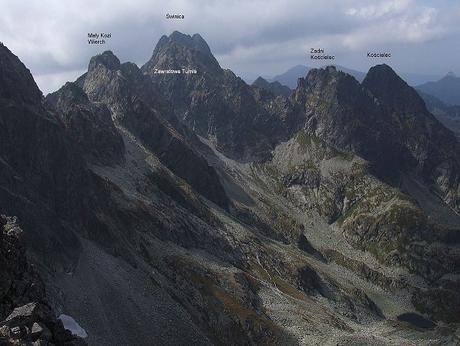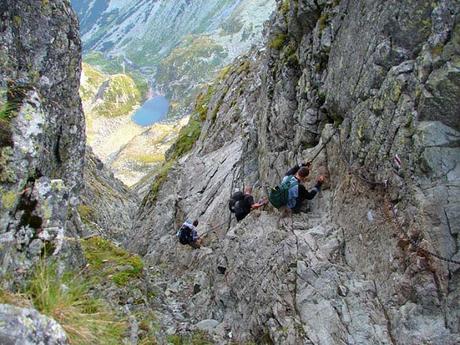“Live dangerously!” Nietzsche, Thus Spoke Zarathustra
If there were one piece of nostalgia I have for Poland, it would be my cherished memories of hiking in the Tatra mountains. My younger brother, Adam, was an inspiration. He had been on a school trip to Pieniny mountains, with the famous Dunajec rafting, and came home transfixed, beaming with joy. I wanted to try this adventure too. I must have been in my second year of medical school, when I got the bug. My fellow student had just diagnosed a systolic murmur while practicing auscultation on my heart. The murmur was most likely a result of damage to my mitral valve, a sequel of numerous streptococcal infections of the throat that I had throughout childhood; the smell of penicillin, regularly administered by a nurse, still haunts me. I decided to largely ignore my colleague’s finding and test my heart, and myself, in the Tatra mountains. My early face to face encounters with the mountains were most memorable. After quite a long train journey across Poland, from Gdańsk to Krakow and then to Zakopane, I joined a group of fellow students from various universities all over the country. Piotr, a student of theoretical physics from Katowice University, was our guide. He was as tough as he was caring, but above all he was very encouraging. ‘And you can do it!’ was his maxim. One particular hike etched itself in my memory: Świnica in the High Tatras. It all started quite inconspicuously, but the higher we climbed the scarier it felt. Looking down the abyss was more dizzying than looking up towards the peak. So, concentrating on the rock immediately before one’s eyes became the best way of keeping on ‘straight and narrow’. At one point, when we had to tiptoe on a narrow path high above, Piotr sensed our apprehension and stopped to form an arch with his arms, the arch under which we passed one by one. This was his way of protecting us from… ourselves. ‘If he could combat his fear, why can’t I, I thought’. By the end of that fortnight trip, we climbed Orla Perć (Eagle’s Path), the most dangerous ridge in the High Tatras (2,159 metres ‘above sea level and all things human’). I felt that I almost became an eagle myself. In the evenings, by the camp fire, Piotr read stories of mountain explorers to us. One such story was about a hiker who became so paralysed by fear that his companions had to carry him down. I felt strangely reassured— fear, even excessive, is a natural reaction to ‘everything strange and questionable in existence’. So it was that, I realised, we had to overcome. ‘Fear and nothing besides’, as Nietzsche would have put it. In some later adventures, I recall being stuck to the rock, holding onto a chain, trying to find a safe, solid rocky protrusion to rest my foot on. If at all! I learned that, at least sometimes, the journey once commenced must be completed, one cannot stop or go back. One just has to go on. I also learned that one must respect the mountains and nature and never take it for granted, and that danger is a part of life. In my later combats with the Tatras, I also claimed the highest peak, Rysy, on the border between Poland and Slovakia. But that was boringly non-dangerous. The Alps, the Andes and the Himalayas came later, but none made a deeper imprint on my soul than the escapades in the Tatras. Perhaps with the exception of my walks in Nietzsche’s footsteps around Sils-Maria in the Swiss Alps, many years later. I must have been naturally Nietzschean long before I became a conscious admirer of Nietzsche. I find his idea of ‘overcoming’ (Überwindung), and its derivative, ‘self-overcoming’ (Selbstüberwindung), particularly appealing. “And life confided the secret to me: behold, it said, I am that which must always be overcome”, he said in Thus Spoke Zarathustra. However, just like his other ideas, he never quite explained it and hence it’s open to interpretations. For me, it means to be able to challenge oneself continually and not getting stuck in a groove of cosy sameness. Sometime it means overcoming one’s fear, but it can also mean overcoming one’s heroic tendencies. The experiences described above might appear quite heroic, but later in life I found that abandoning an earlier project and making a timely U-turn can also be a form of overcoming. Sometimes, one must overcome even one’s own heroism! Perhaps, the most important thing is to be true to oneself and become what one is, even if this means perpetual self-struggle.Świnica (meaning ‘sharp’ in old Highlander), the highest peak in the photo below.
Orla Perć (Eagle’s Path) (below)

--Contact details: [email protected]
